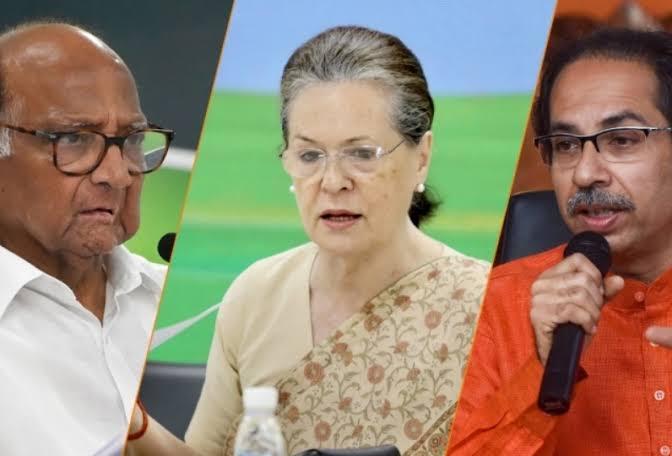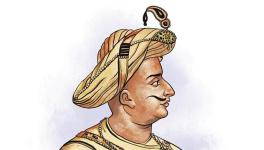BJP’s Maharashtra Fiasco: Let Us Not Be Childish, Mr Shah

Bharatiya Janata Party (BJP) president and Union Home Minister Amit Shah’s first reaction to the ‘fiasco’ in Maharashtra would have been risible, had it not been both tragic and jejune. This was certainly not expected from someone termed as the ‘Chanakya’ of our times.
There are several surreal claims in Shah’s reaction to his party’s public humiliation, loss of face and, importantly, loss of credibility, the last of which affects outgone Chief Minister Devendra Fadnavis the most, as he did have some standing.
The one claim that stands out by way of patent absurdity is that the BJP did not indulge in any form of corrupt politics when it tied up with Nationalist Congress Party (NCP) leader Ajit Pawar, whom Prime Minister Narendra Modi, Shah and Fadnavis had all excoriated as being completely corrupt over the past five years, even threatening to jail him, because it was not the BJP that had approached him, but the other way around. “We didn’t go to him,” Shah said. “He came to us and offered support…What is unconstitutional in this?”
There is nothing unconstitutional in accepting support from anyone or any party. But when you have characterised a party as a ‘Naturally Corrupt Party’, playing on the initials of the party’s name, and, as mentioned, excoriated the leader of its legislature party as one of the most corrupt of politicians, you do not try and form a government in alliance with it. It is not as if these characterisations were made decades or years ago and have become irrelevant, these are actually right out of the oven. And the technicality of who approached whom must rank as one of the loudest political clangers in recent memory.
Then there was Shah’s incomprehensible definition of ‘horse-trading’. The Concise Oxford Dictionary defines the compound word as ‘hard and shrewd bargaining’. In the Indian political context, it is taken to mean acquiring support from legislators to form or destabilise a government with the offer of money, position or other inducements. Shah, however, upended these conventional understandings by asking, “Isn’t it horse-trading to take support by offering the chief minister’s post?”. In other words, Shah is suggesting that the Congress and NCP had indulged in horse-trading by offering Shiv Sena the chief minister’s post.
The simple answer to Shah’s absurd question is: ‘No’. Offering the Sena the chief minister’s post would not qualify as horse-trading under any circumstances. In a situation in which the Sena has the largest number of seats of the three parties in the now ruling alliance—it has 56 seats to the NCP's 54 and the Congress’s 44—it does sound reasonable on the face of it that the Sena should get the chief minister’s post. You could call the alliance ideologically unprincipled, but that’s another matter.
Sticking to the issue of horse-trading, Shah made another bizarre statement. “We didn’t engage in any horse-trading,” he said. “They (NCP-Congress) ran away with the entire stable and nobody is asking any questions.” Whatever is this supposed to mean? In what way did the NCP and Congress run away with the whole stable? And which stable was that?
The closest explanation this analyst can think of is that Shah meant the Sena stable. But the point is that the relationship between Sena and BJP had broken down over the 50:50 question quite independently of what the two other parties had or had not done. It was only after the BJP’s intransigence had led to the pre-election alliance breaking down, that the Sena got together first with NCP and then Congress joined them hesitantly.
Finally, there is the issue of the ‘stolen mandate’. It can reasonably be argued that the people of Maharashtra voted for the BJP-Shiv Sena combine. And the pre-poll alliance picked up 161 seats in a 288-member House and thus got the mandate to form a government. The Sena betrayed the mandate by ditching its pre-election ally to later form a government in alliance with those it had contested against. I can say this, you can say this and the people of Maharashtra can most certainly say this. But BJP cannot say this because of two reasons.
Had BJP not tried to form a government in alliance with an electoral opponent (exactly what the Sena has done) through a smash and grab operation conducted between midnight and the early hours of the morning, which involved the prime minister surreptitiously using special powers in a situation that did not warrant such invocation to lift President’s rule, in the process waking up the Governor at an unearthly hour, it might just have had a leg to stand on. As things stand, when Shah says, “Those who made camps didn’t do anything wrong? Those who broke alliances to form the government are not wrong?”, he just sounds like a whiny kid who lost his candy. At least, whatever the Sena did, was done publicly.
Second, when Shah talks about a ‘stolen mandate’, we are inescapably taken back to July 2017, when BJP, under Shah’s stewardship, engineered a split between the Janata Dal-United (JD-U) and Rashtriya Janata Dal (RJD) to form a government in Bihar with the former. The two parties had contested the Assembly elections together, forming a mahagathbandhan with other parties and won 178 out of 243 seats. The RJD, which had won more seats than JD-U had nevertheless accepted JD-U leader Nitish Kumar as chief minister. Shah may be conveniently amnesiac, we are not. That was a classic ‘stolen mandate’.
It’s not just a question of amnesia. There is also the issue of distorting the truth. Whenever Shah speaks on controversial issues, there is reason to be wary. On November 20, for instance, he made a statement on Kashmir in the Rajya Sabha in which he claimed that the “whole situation is normal” in Kashmir. This is an untruth of such staggering proportions that one can hardly even begin to dismantle it. It would require a semantic approach to figure out what the word ‘normal’ actually means. It’s a parallel to his ‘horse-trading’ claims. The specific claims are easier to show up. Shah claimed, for instance, that not a single person had died in police firing since August 5, when Article 370was abrogated. However, there are credible allegations that people have died in police action, like one Asrar Ahmad. In any case, when you’ve muzzled the press, arrested Opposition leaders and will not allow neutral observers to assess the situation freely, you can claim pretty much anything.
Shah also claimed that schools had opened and were functional in Kashmir, citing statistics relating to students who had taken examinations. This is a classic half-truth. Yes, students did take examinations, but only after having to miss classes for months. Examinations without instruction. The Union home minister also claimed that banks and health centres were functioning, well, normally. Health centres had almost completely shut down, but by November had started functioning. But they are still hamstrung because of restrictions.
If prevarication and subversion of rules and conventions are signs of ‘master’ strategising, Shah must surely be counted as a ‘master strategist’. But in that case, India could certainly do with fewer such master strategists or ‘Chanakyas.’
The author is an independent journalist and researcher. The views are personal.
Get the latest reports & analysis with people's perspective on Protests, movements & deep analytical videos, discussions of the current affairs in your Telegram app. Subscribe to NewsClick's Telegram channel & get Real-Time updates on stories, as they get published on our website.
























